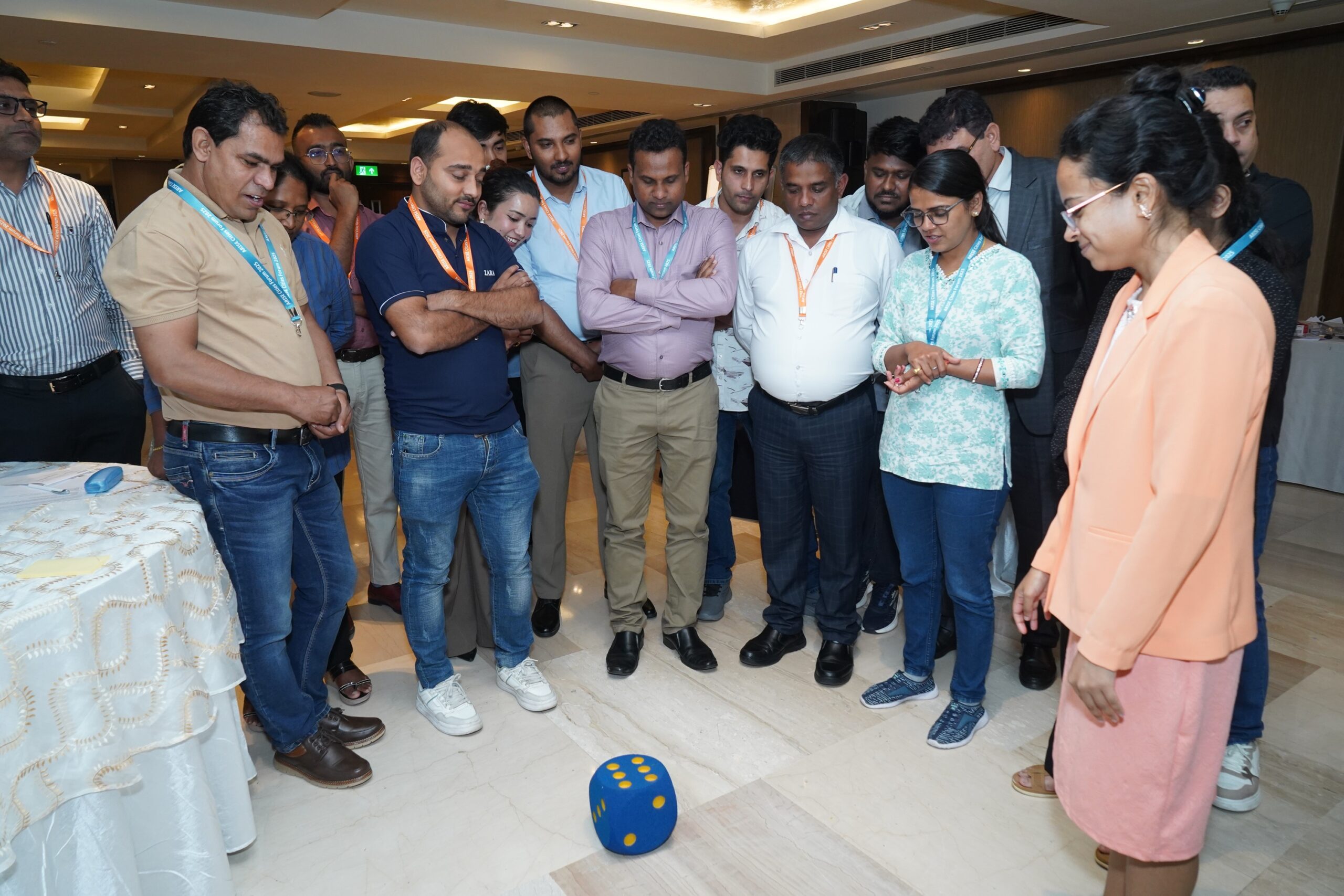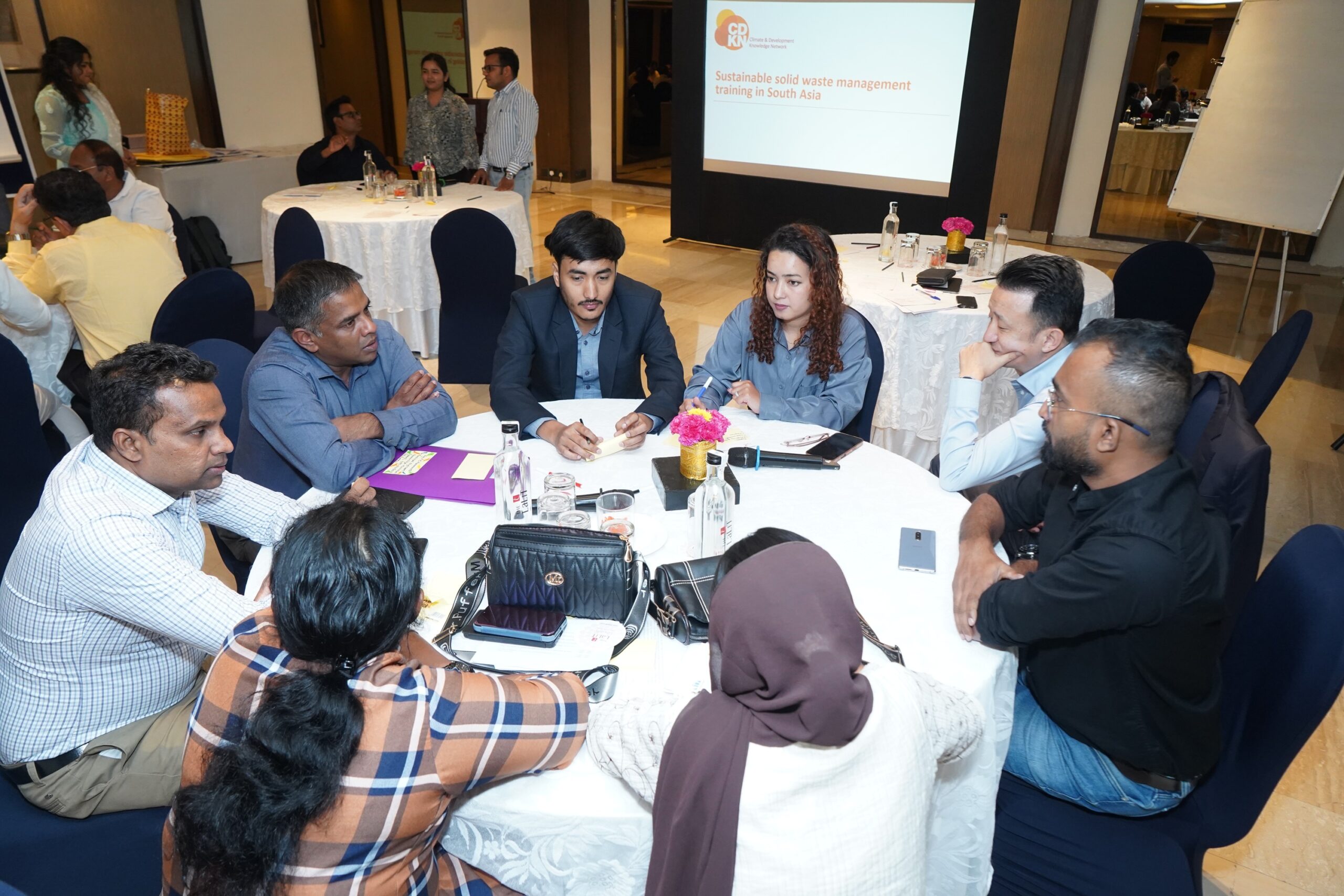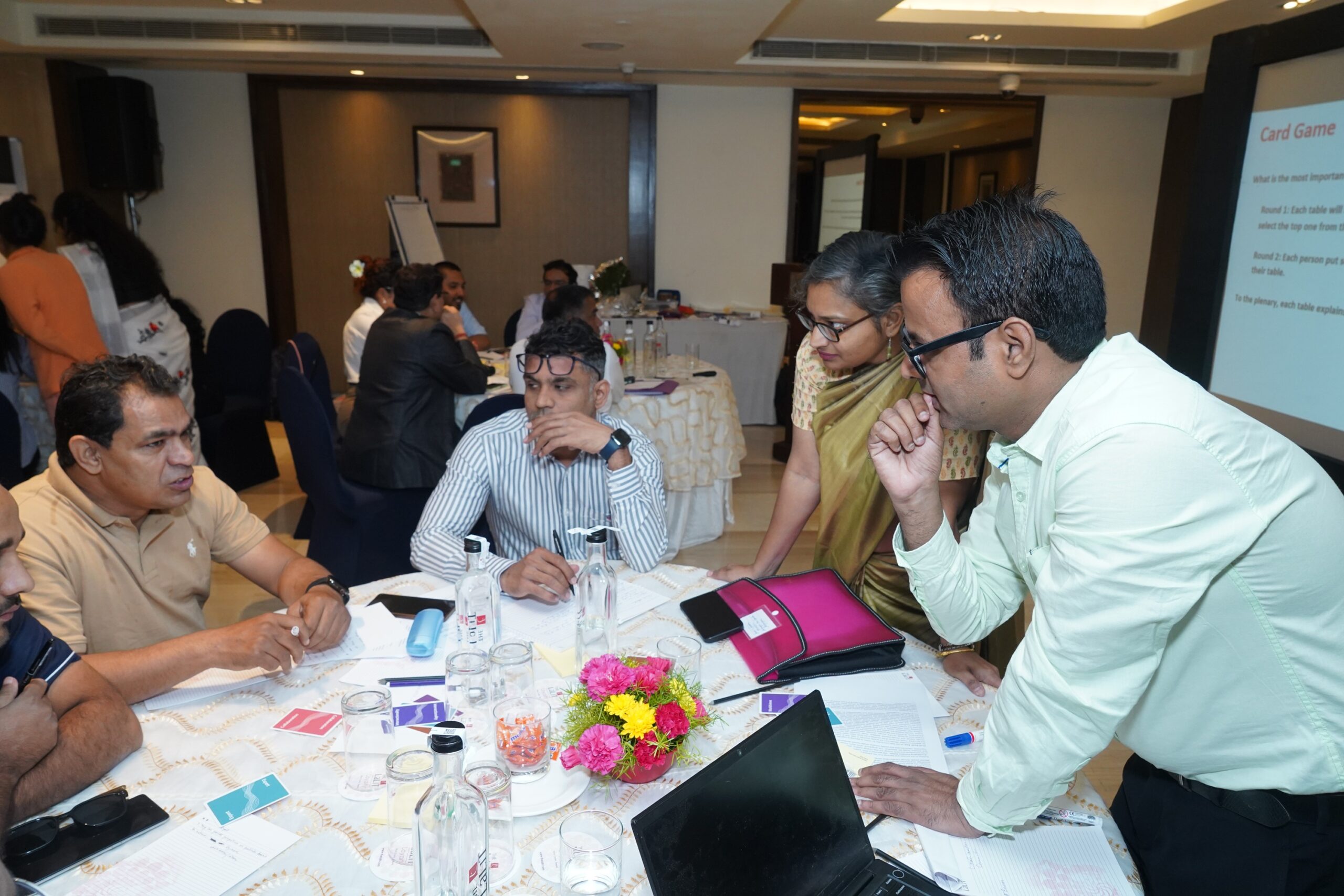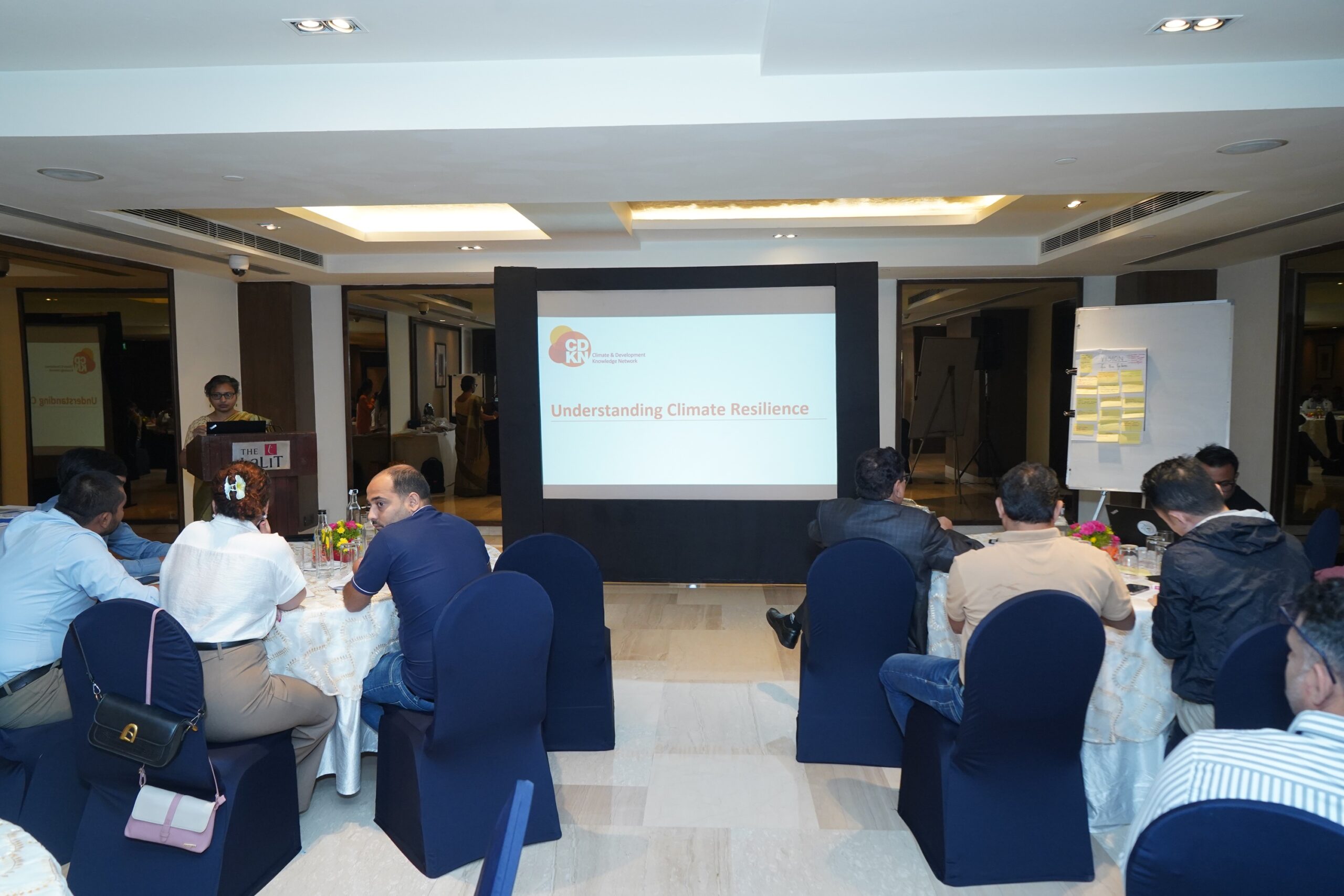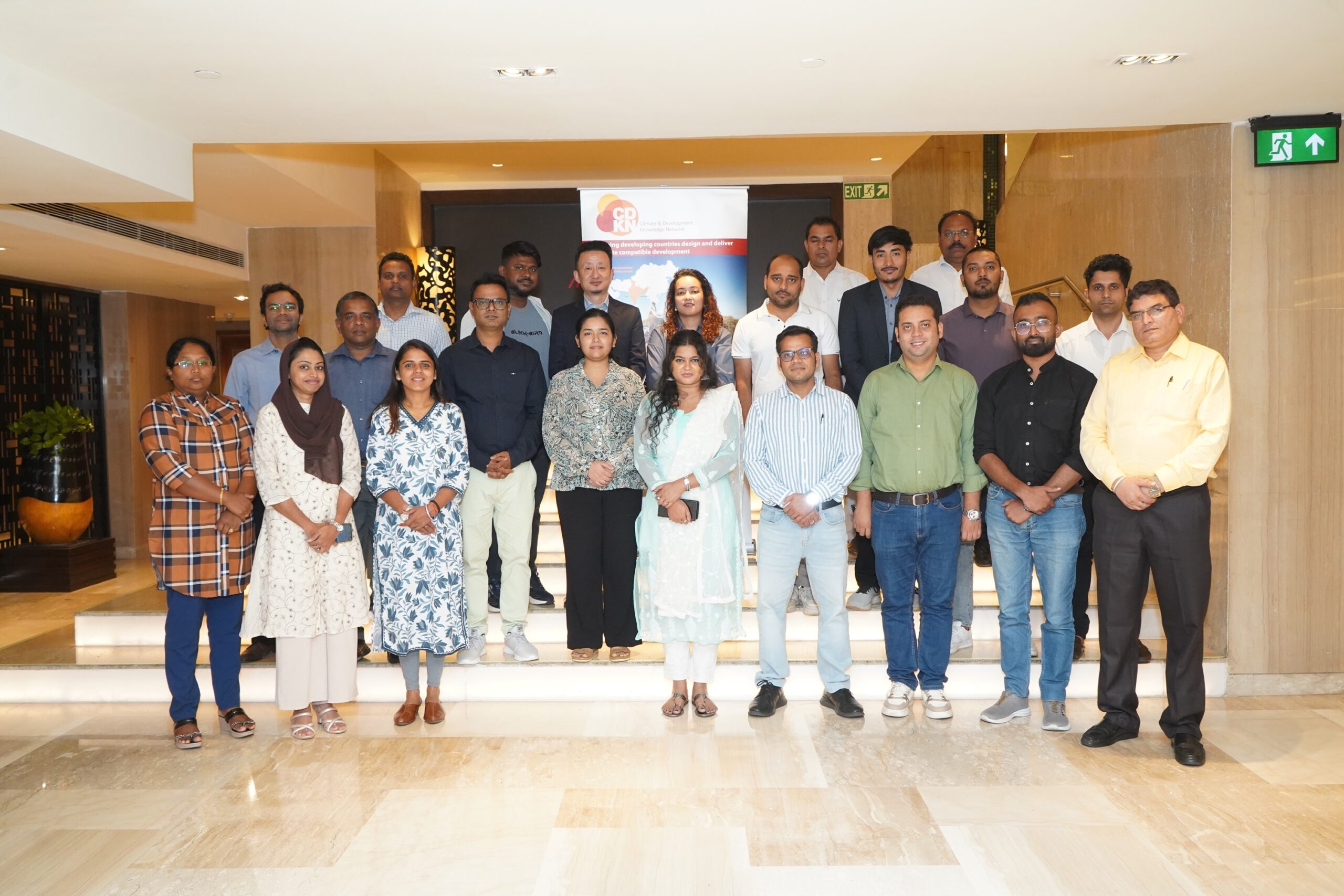Strengthening South Asian Cities for Climate Resilience: CDKN Begins Year-long Training Initiative

ICLEI South Asia organised a two-day training and peer-exchange workshop on Climate Resilience and Disaster Risk Reduction (DRR) in cities from 10–11 October 2025, in New Delhi, India. The event marked the formal launch of a year-long capacity-building programme for city officials under the third phase of the ‘Climate and Development Knowledge Network (CDKN) – Accelerating Inclusive Action,’ supported and funded by the Ministry of Foreign Affairs of the Netherlands and the International Development Research Centre (IDRC) through the Step Change Initiative.
The new phase of the programme, to be implemented between October 2025 and September 2026, aims to strengthen the capacities of local governments and city officials from India, Nepal, and Sri Lanka. These countries rank among the most climate-vulnerable in South Asia. The initiative focuses on building practical knowledge and institutional capacity for assessing, planning, financing, implementing, and monitoring local climate and DRR actions. Through continued peer learning and hands-on training, the participating officials will be equipped to embed resilience measures into any actions that they undertake on urban development and governance.
The two-day workshop in New Delhi introduced participants to key concepts and approaches in climate resilience, disaster risk reduction, and sustainable solid waste management. Bedoshruti Sadhukhan, Associate Director, ICLEI South Asia, led discussions on Climate Resilience Planning and DRR, emphasising the integration of Gender and Social Inclusivity (GESI) into local planning frameworks. Rahul Singh, Senior Manager, and Bhupandra Salodia, Deputy Manager, conducted sessions on Climate Risk and Vulnerability Assessment and Sustainable Solid Waste Management, highlighting practical tools for urban practitioners. Karishma Asarpota, Senior Officer, ICLEI – Local Governments for Sustainability, facilitated a session on ‘Just Transition,’ underlining the need for equitable and inclusive pathways in climate action and resilience building.
The workshop adopted interactive learning methods, combining PowerPoint presentations with group discussions, and participatory games to encourage active engagement and peer exchange. A total of 21 participants from 12 municipalities across Nepal, Sri Lanka, and India attended the event, sharing local experiences and best practices to strengthen regional cooperation on resilience and DRR.
Feedback collected indicated that participants highly appreciated the structure and content of the training, particularly the focus on inclusivity and hands-on exercises. Some participants also recommended incorporating field visits in future sessions to enhance practical learning.
As part of the ongoing programme, a series of thematic webinars will be conducted starting from November 2025, delving deeper into topics such as climate finance, data-driven risk assessment, community-based resilience, and inclusive urban planning. These continued engagements will further support participating cities in translating knowledge into actionable resilience strategies, advancing the region’s collective commitment towards sustainable and climate-resilient urban development.
